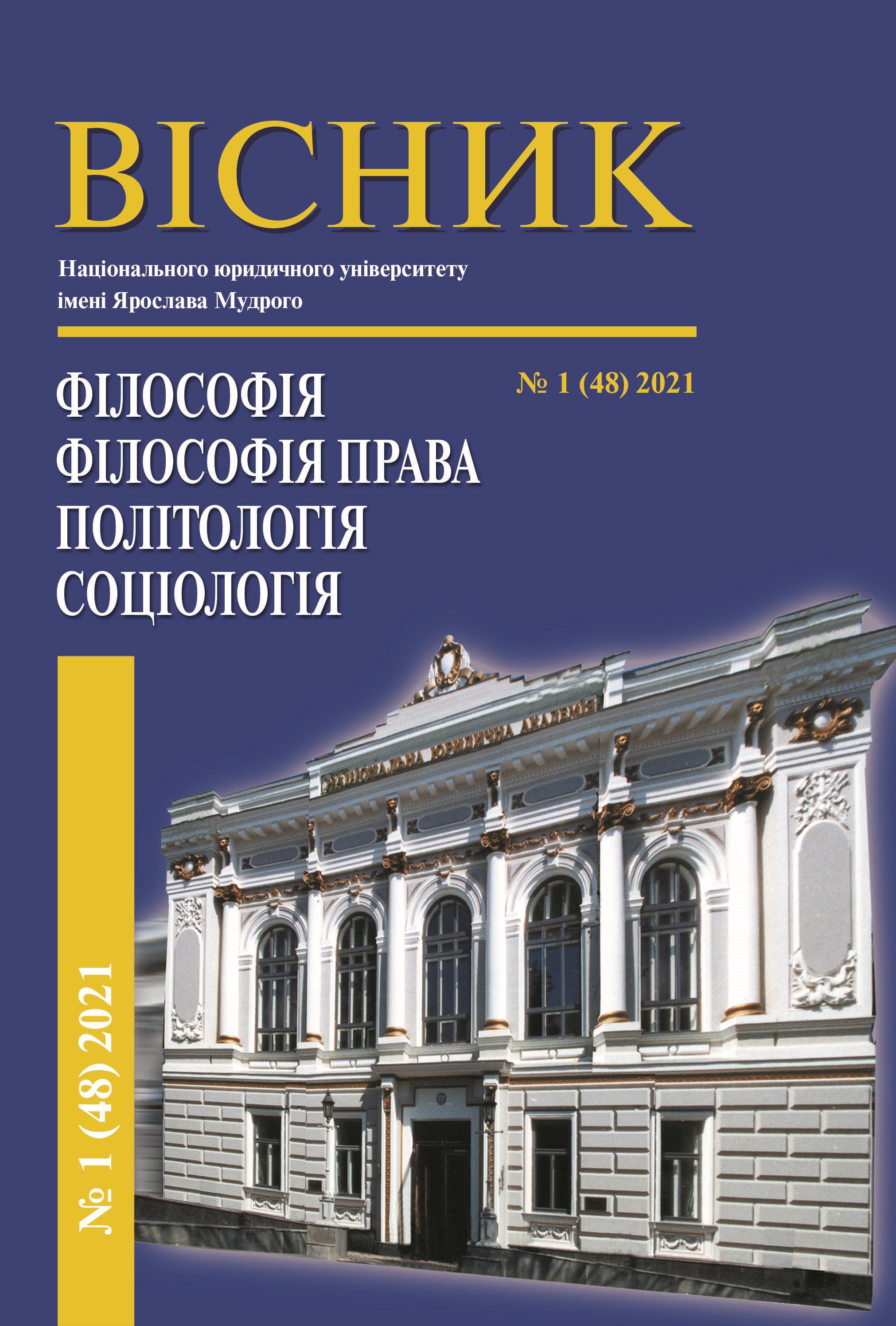ВІРТУАЛЬНІСТЬ У СОЦІАЛЬНОМУ СЕРЕДОВИЩІ: ПРОСТОРОВИЙ МОДУС
THE VIRTUALNESS IS IN SOCIAL ENVIRONMENT:SPATIAL MODUS
Author(s): Oleg Gennadiyevich Danilyan, Olexander Petrovych DzobanSubject(s): Philosophy, Social Philosophy, ICT Information and Communications Technologies
Published by: Національний юридичний університет імені Ярослава Мудрого
Keywords: virtual space; cyberspace; identity; social communications;
Summary/Abstract: Problem setting. An identity is formed and develops on a border social and personal realities, by submitting a sob a their contradictory unity the study of that helps social philosophy to expose the features of life of modern society. For the study of virtuality the analysis of totality of spatially-judicial descriptions of authentication is needed, that will allow to overcome the context of her opening out in the conditions of virtualization of society, when the potential prevails above available. Life is impossible out of time and space, it has specific spatial descriptions.Recent research and publications analysis. Despite the growing interest in the study of the virtual, in modern scientific discourse there is still no unambiguous interpretation of the term «virtual reality»: it is understood as an artificial environment supported by computer programming tools (including the Internet and computer simulators), a number of human mental states (hypnotic trance, dreams, creative process, etc.), as well as a set of phenomena associated with the functioning of the media environment (media, digital economy, etc.). As a result of this posture, the attention of researchers remained the problems of the influence of spatial parameters of virtuality in the social environment.Paper objective. The purpose of the article is to consider the features of spatiality inherent in virtual reality in general, as well as the specifics of cyber-virtuality as a special manifestation of the virtual in social reality.Paper main body. Entering the virtual environment involves going through the initial registration procedure and subsequent identification, a kind of simplified initiation rites, «initiation» into users. In addition, the user gets the opportunity to identify himself as «his», acquires a different status than the «guest», which is anonymous, invisible, in many cases does not have access to information or cannot leave comments. Leaving the Web returns a person to a state of anonymity, while re-entering leads to individuation and return to the cyber-virtual micro-space, the person’s immediate environment on the Web.The concept of «virtual ghetto» is considered, which means a space that isolates subjects within the framework of a virtual social community from other groups through borrowing patterns of social interaction and through the choice of contexts of self¬presentation that allow them to best «fit» into their environment.The Internet is a new space for social practices, a space of boundless, relatively free, communication, despite the desire to control the processes taking place there by the authorities. This is a space for free self-expression of a person, a refuge for creative research, a repository of wisdom, an arena for debate, a work of art that can be valued as a masterpiece of music, painting or architecture. Here it is possible to create social movements based on value identities, independent of the so-called flows (informational, symbolic, monetary, etc.) that regulate social life, set its pace and often contribute to human alienation in the modern world, in particular, through control over access to the Internet.Comprehension of the category of virtual space leads to the statement that traditional spatial oppositions are erased here, and any point in the world can become close and even central. The cycles of entry and exit from this space set the rhythm of relations within virtual communities, self-developing intellectual systems, united by a semantic field that is significant for each of their members.Conclusions of the research. Relations within virtual communities are determined in a certain way by the functioning of social fields characterized by a set of norms, the internalization of which leads to the inclusion of the individual in the field, where he is endowed with some freedom of action. Human limitation by the framework of the field, his dependence on the virtual micro-space in decision-making, being on the «virtualperiphery» is opposed to absolute freedom, leading, ultimately, to the limitation of the framework of personal space, fraught with alienation from society, the loss of the need for communication and society.
Journal: Вісник НЮУ імені Ярослава Мудрого. Серія: Філософія, філософія права, політологія, соціологія
- Issue Year: 48/2021
- Issue No: 1
- Page Range: 34-50
- Page Count: 17
- Language: Ukrainian

